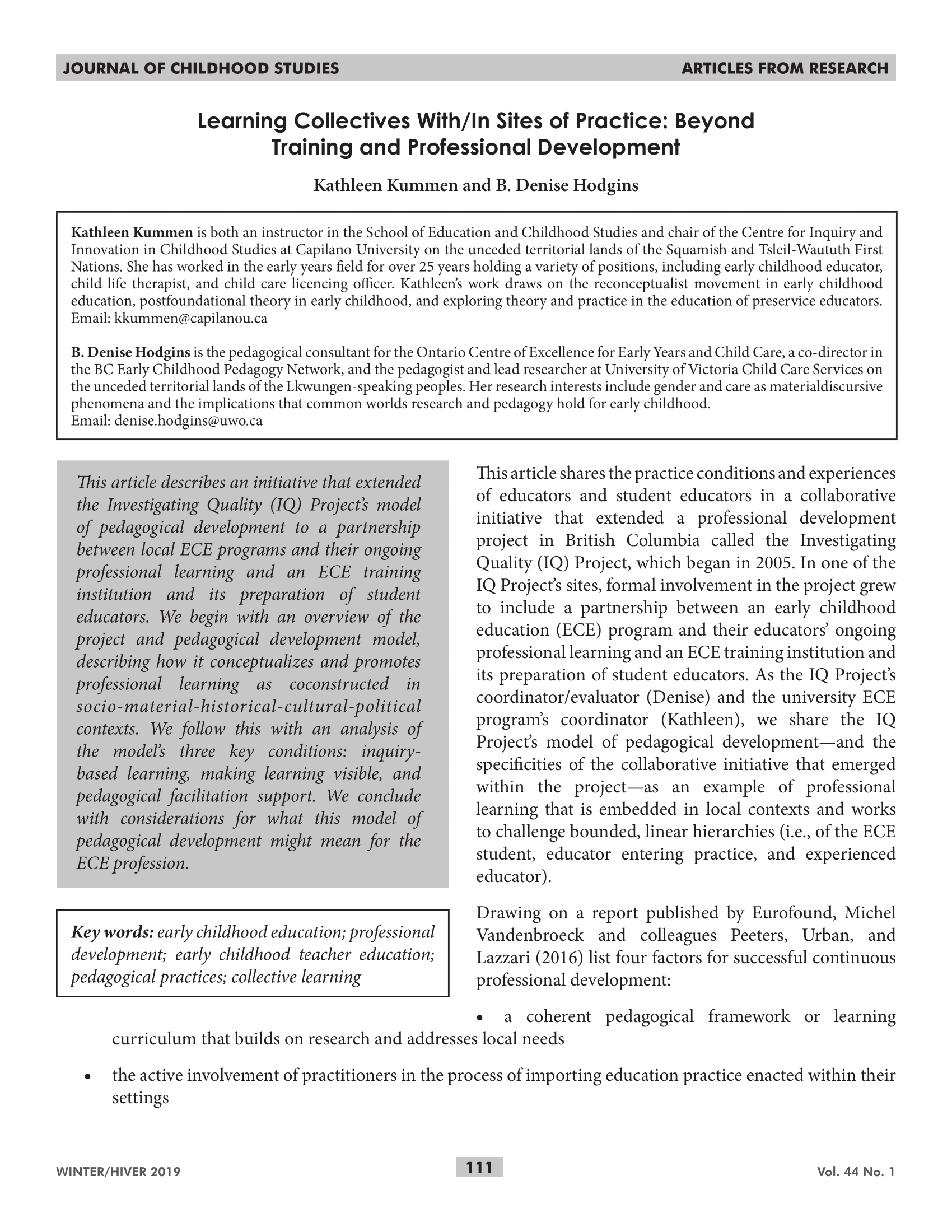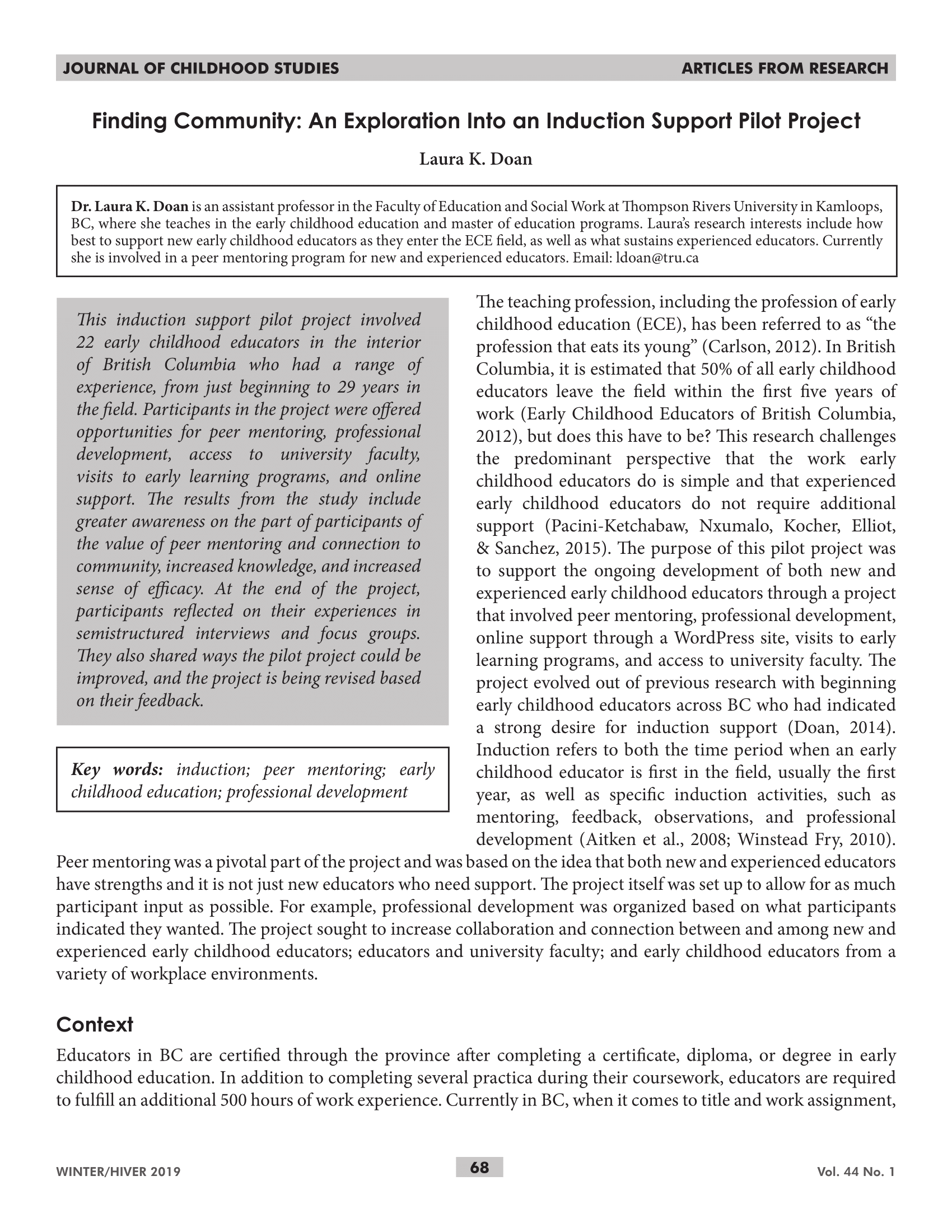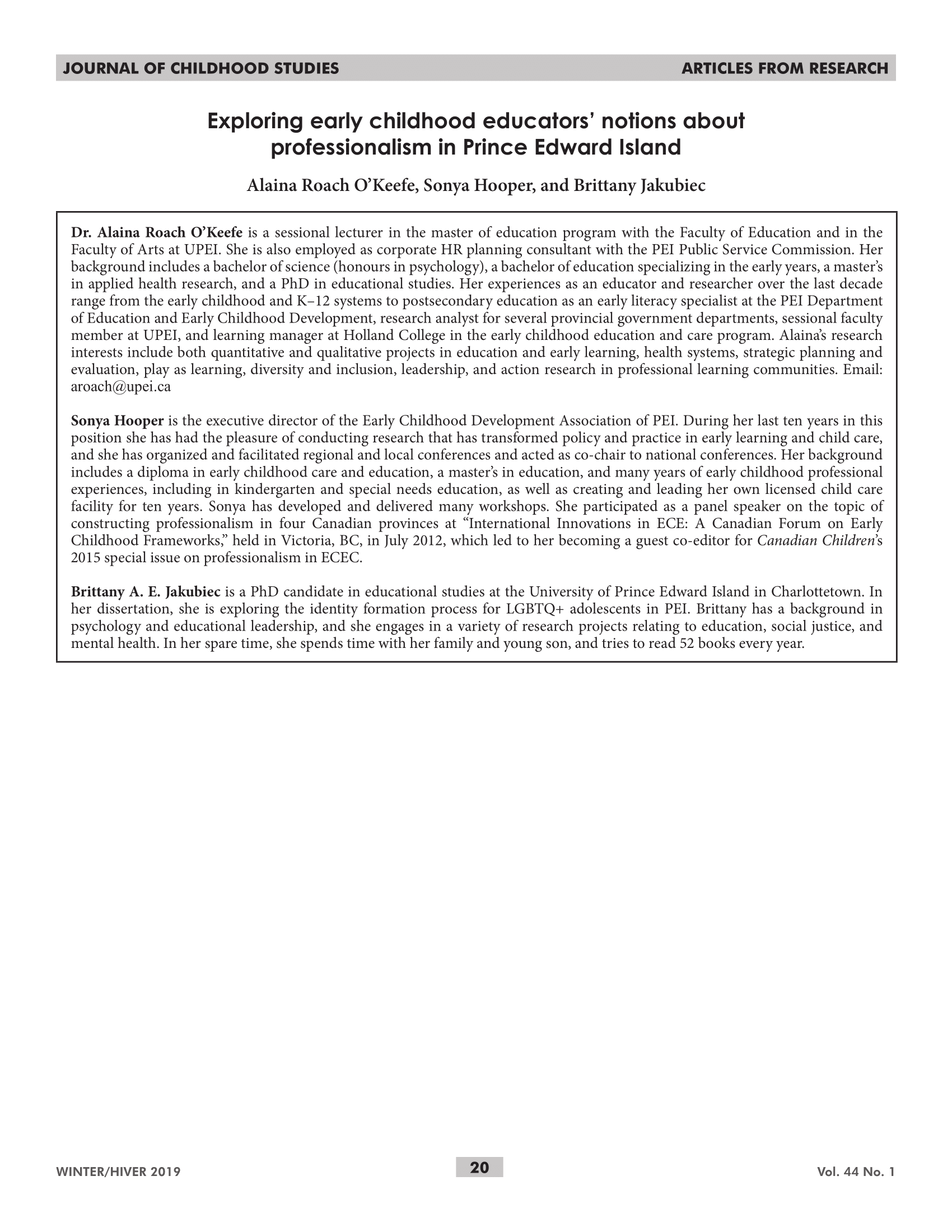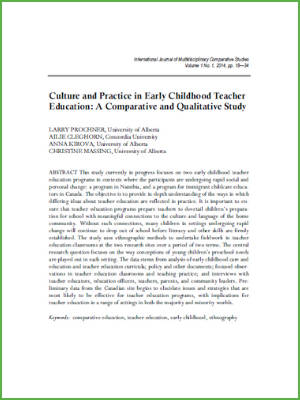Learning Collectives With/In Sites of Practice: Beyond Training and Professional Development

This article describes an initiative that extended the Investigating Quality (IQ) Project’s model of pedagogical development to a partnership between local ECE programs and their ongoing professional learning and an ECE training institution and its preparation of student educators. We begin with an overview of the project and pedagogical development model, describing how it conceptualizes and promotes professional learning as co-constructed in socio-material-historical-cultural-political contexts. We follow this with an analysis of the model’s three key conditions: inquiry based learning, making learning visible, and pedagogical facilitation support. We conclude with considerations for what this model of pedagogical development might mean for the ECE profession.
Authors: Publication:Journal of Early Childhood Studies
Year of Publication:2019




